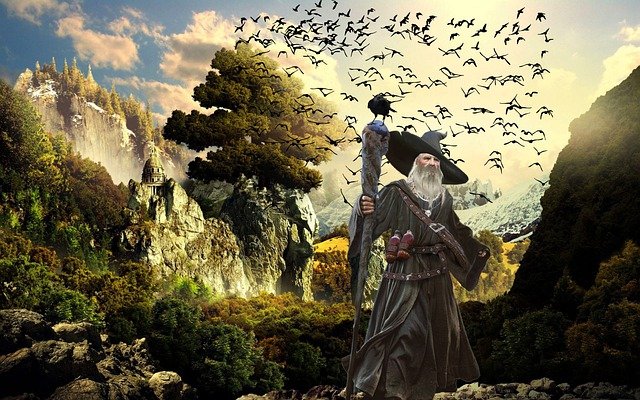
Fiction is associated with fantasy.
The notion of fiction identifies the act and consequence of pretending (that is, allowing the existence of something that, in reality, does not appear on the real level ). In this sense, it can be said that a fiction is something that has been faked or that it is an invention .
A fiction is, on the other hand, any literary work or cinematographic work that narrates imaginary events (described as fictitious). That is why, for example, we can talk about a fictional book or film. The opposite case is a journalistic investigative book or a documentary, spaces where we work with elements based on true issues.
It should be noted that there are also works that are hybrids between fiction and reality. Nonfiction and narrative journalism often combine fictional details with authentic ones.
Mimesis
The development of the notion of fiction is linked to the idea of mimesis , a concept developed in Ancient Greece by Aristotle and Plato .
The French philosopher Paul Ricoeur reportedly divided mimesis into three phases: the first consists of the structuring of the text and the organization and presentation of the plot . The next stage revolves around the development of the content itself, while the last phase is the reconfiguration of the material that is in charge of the readers .
It should be noted that, by becoming interested in a work of fiction, the reader (or viewer, depending on each case) agrees to respect a fictional pact , which leads to accepting the story without questioning the falsity of the statements.

A work of fiction presents imaginary events; that is, they did not happen in reality.
Literary language in fiction
One of the licenses that every author has when writing a work of fiction is the use of imaginary scenarios and the ability to mix elements of reality with others belonging to the fictional. Some authors like Tolkien have created entire worlds with unreal beings and even their own language; All these elements have a meaning within that story and must maintain a certain coherence .
The language used by the author responds to this world and must express that the events that occurred in those pages are true and that this world is all that the reader has at that moment . It is important to clarify at this point that fiction does not imply the possibility of any event occurring, but rather that everything has to have a meaning; Otherwise, it would be a poorly finished work. Each story, whether based on reality or presenting an imaginary alternative, must have a structure and coherence, where all the events that occur there are "realistic" from the point of view of the universe that is painted in it.
One of the fundamental challenges of every fiction author is to be able to offer a work that presents a convincing and engaging reality, which allows the reader to forget about their own life and move into the world of the story while scrolling through the pages of the book.
Presence in different genres
It is important to note that fiction is not, however, synonymous with fantasy or unreality; A historical novel but one that narrates events that have never taken place in reality is a work of fiction, as is a futuristic story or one where beings from other planets or similar characters appear.
Within fiction there are several literary genres, such as the fantastic (which includes fairy tales, horror, works of science fiction , novels of chivalry and heroic fantasy), the romantic novel and the crime novel (detective stories or crime novels). spies). In any case, it is necessary to keep in mind that this classification is not exclusive and that to know if a text is fiction or not, it will be enough to know if the events that are narrated are based on reality or come from the author's literary imagination.
